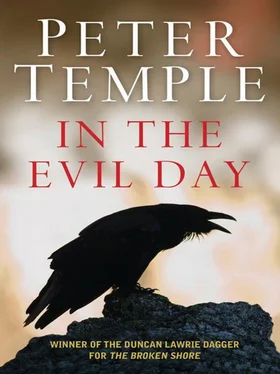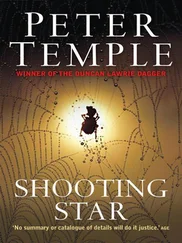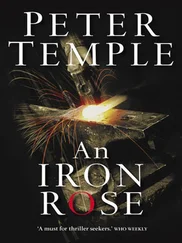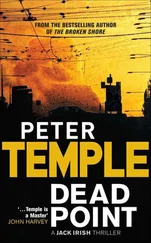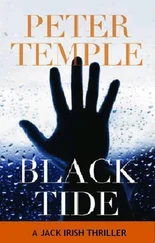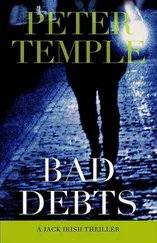Peter Temple - In the Evil Day
Здесь есть возможность читать онлайн «Peter Temple - In the Evil Day» весь текст электронной книги совершенно бесплатно (целиком полную версию без сокращений). В некоторых случаях можно слушать аудио, скачать через торрент в формате fb2 и присутствует краткое содержание. Жанр: Триллер, на английском языке. Описание произведения, (предисловие) а так же отзывы посетителей доступны на портале библиотеки ЛибКат.
- Название:In the Evil Day
- Автор:
- Жанр:
- Год:неизвестен
- ISBN:нет данных
- Рейтинг книги:5 / 5. Голосов: 1
-
Избранное:Добавить в избранное
- Отзывы:
-
Ваша оценка:
- 100
- 1
- 2
- 3
- 4
- 5
In the Evil Day: краткое содержание, описание и аннотация
Предлагаем к чтению аннотацию, описание, краткое содержание или предисловие (зависит от того, что написал сам автор книги «In the Evil Day»). Если вы не нашли необходимую информацию о книге — напишите в комментариях, мы постараемся отыскать её.
In the Evil Day — читать онлайн бесплатно полную книгу (весь текст) целиком
Ниже представлен текст книги, разбитый по страницам. Система сохранения места последней прочитанной страницы, позволяет с удобством читать онлайн бесплатно книгу «In the Evil Day», без необходимости каждый раз заново искать на чём Вы остановились. Поставьте закладку, и сможете в любой момент перейти на страницу, на которой закончили чтение.
Интервал:
Закладка:
‘Well,’ she said. She tapped the side of her nose with the rolled note, offered the roll. ‘We were at home all evening, officer, we watched television…’
Hird laughed, gave her the nod, nod, wink, wink, took the note and put it in his shirt pocket.
‘Keep insertin it up the bastards,’ he said.
34
…HAMBURG…
Inskip was watching the vision from some pale anonymous formica-walled airport terminal, views of queues, of passengers, close-ups of faces when their turns came at the counter. He jumped from queue to queue, face to face.
‘Real time in Belgrade,’ he said. ‘It’s a feed to the people who sold them the system. Quality control purposes.’
‘Very nice,’ said Anselm. ‘What’s our interest?’
‘Intellectual, for the moment. Another breakthrough in techniques of invasion. I thought that earned praise.’
‘It does. You’re a promising person.’
Inskip sniffed. ‘That’s a theatrical sniff,’ he said.
‘Don’t get to the theatre much.’
‘Moving on, I have the new London subject’s hire car in a parking garage near Green Park. Bill’s mounting, they’ve run a check on it.’
Eric Constantine. The name stuck in his mind.
‘Probably a dead end then,’ said Anselm. ‘I’m going home.’
‘Do you do that?’ said Inskip.
Anselm was packing up when the phone rang.
‘It’s yes,’ said O’Malley.
Anselm rang Tilders.
‘Yes,’ said Tilders. ‘They understand this is going to be difficult?’
‘Yes.’
‘Wish us luck.’
‘I do. Luck.’
Anselm had no urge to run home, walk home. He went out into the cold, misty night and, for the first time, took the sagging BMW car home. Outside the house, he got out and opened the wooden gates. It was a fight. Bolts and rusted hinges contested his wishes. He parked in front of the garage. No car had stood there for a long time, on those brick pavers.
Standing on the dark threshold, looking for the key, and inside, when he was sitting in the kitchen, glass in hand, he thought again about his Moritz: pro-Nazi. An anti-Semite. He looked like some count painted by von Rayski. And I look like him.
Anselm went to the photographs on the wall, the photographs Alex had looked at on the first night. There were dozens, going back more than a century-formal portraits, groups, weddings, dinners, sailing pictures, pictures taken at balls, in the garden, on the beach at Sylt, pictures of children, children with dogs, him with his parents and Lucas, Gunther and his wife, him with his grandfather in the garden, both with forks, big and small. No photograph of anyone who could be Moritz.
Surely Moritz could not have missed every single photographic occasion?
He went back to the kitchen, sat down. Alex. He should telephone her and say that he had changed his mind, apologise for wasting her time in Stadtpark. He had enjoyed talking to her, he could say that, but he didn’t want to talk about the past.
The telephone rang and Anselm knew. He let it ring for a while and then, suddenly fearful that the ringing might stop, he went to answer it.
Alex’s apartment was the size of a house, on the third floor of an old building in Winterhude, built between the wars, an Altbauwohnung.
Anselm said, ‘May I lie on a couch? Or have I suggested that before?’
Alex Koenig smiled. ‘You have and you may not. I’ve got coffee. Or brandy and whisky. Some gin left. I like to drink gin in summer.’
She was all in black, a turtleneck sweater and corduroy. Her hair was pulled back. Anselm thought she looked beautiful and it made him even more uneasy.
‘You can’t drink gin after sunset,’ he said.
‘Yes? Is that a British rule? It sounds British.’
‘I suppose so.’
‘But you’re not British.’
‘My mother’s family are English.’
‘Ah, mothers. They like rules. Impose order on the world, that’s a mother’s primary function. There is also beer and white wine.’
‘White wine, thank you.’
She left the room and he went to the window. The curtains were open and he looked out at the winter Hamburg night, moist, headlights, tail lights reflected on the shiny black tarmac skin. The streetlamps made the last wet leaves on the trees opposite glint like thousands of tiny mirrors. He turned, noticed the upright piano, an old Bechstein, went across and opened it, he could not resist. His right hand played. The piano was badly in need of tuning. So was his hand, he thought.
‘You’re musical,’ she said.
Anselm turned around. ‘Playing “Night and Day” doesn’t make you musical.’
‘It makes you more musical than I am.’
He took a glass from her. ‘Thank you. Interesting furniture.’
‘The chairs?’
‘A passage lined with chairs. About twenty chairs in this room. Yes, the chairs.’
‘Kai’s obsession. My ex-husband. Did I say his name? He likes things people sit on. Very much. He seeks out chairs.’
‘Would you say he craved chairs?’
She tilted her head. ‘Chairs he doesn’t have, yes. There is an element of craving.’
‘He must miss them.’
‘I don’t think he cares about them after he’s got them. It’s the thrill of getting them. He wants them but I don’t think he cares about them.’
‘Napoleon was like that,’ Anselm said. ‘So were the Romans, I suppose. Whole nations they didn’t care about and wouldn’t part with. Did this chair thing bother you?’
‘Very much. It kept me awake. And then again, not at all. Are you sure you’ve eaten?’
‘Is this going to be taxing? Do I need to be in shape?’
‘Let’s sit down.’
They sat, a narrow coffee table of dark wood between them, a modern piece. On it was a tape recorder, a sleek device.
‘May I record this?’
‘My instinct is to say no,’ said Anselm. ‘But why not?’
‘Thank you.’ She touched a square button. ‘To begin,’ she said. She wet her lips with wine. ‘Can I ask you about your memory of the events? Is it clear?’
‘It’s fine. It’s earlier and after that’s the problem.’
‘After your injury?’
‘Yes. I don’t remember anything for about a month.’
‘And earlier?’
‘There are holes. Missing bits. But I don’t always know what’s missing. There are things you don’t think about.’
‘Yes. So, the beginning. Your experience in trouble spots, that would have prepared you to some extent?’
‘Well, by ’93 Beirut wasn’t really a trouble spot. Southern Lebanon, yes. Anyway, I thought we were dealing with GPs.’
‘GPs?’
‘Gun pricks. Paul Kaskis coined the term. Long before. A prick with a gun.’
‘Ah. You would fear them surely? Gun pricks.’
Gun pricks . She said the words with a certain relish.
‘There’s a survival rule,’ said Anselm. ‘Paul invented that too. DPGP. Don’t Provoke Gun Pricks. He didn’t but they killed him anyway.’
‘So you were scared?’
‘I was scared. I thought you were interested in personal history?’
‘I am. But I need to know about the specific circumstances too. Does it bother you to talk about them?’
He had come in trepidation and had been right to. He didn’t want to talk about Beirut, it was stupid to have agreed to. She wasn’t that interesting, appealing, she wasn’t going to be the answer, an academic, they bled most of them of personality before they gave them the PhD. But he wanted to behave well, he had a bad history with her, he didn’t want her to think he was disturbed.
‘Well,’ said Anselm, ‘you should always be scared around GPs. The first few minutes, there’s usually a lot of shouting, all kinds of crap, you just hope it dawns on them killing you might not be smart. Or that someone more intelligent or less drugged will come along, tell them to back off.’
Читать дальшеИнтервал:
Закладка:
Похожие книги на «In the Evil Day»
Представляем Вашему вниманию похожие книги на «In the Evil Day» списком для выбора. Мы отобрали схожую по названию и смыслу литературу в надежде предоставить читателям больше вариантов отыскать новые, интересные, ещё непрочитанные произведения.
Обсуждение, отзывы о книге «In the Evil Day» и просто собственные мнения читателей. Оставьте ваши комментарии, напишите, что Вы думаете о произведении, его смысле или главных героях. Укажите что конкретно понравилось, а что нет, и почему Вы так считаете.
